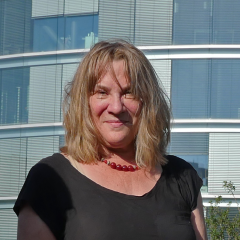Profile
PhD, University of California, Berkeley
Susanna Hecht's research focuses largely on land use change in the Latin American tropics. Her work represents a remarkable integration of the humanities, including the history of ideas, social and environmental history, and the social sciences of development into the dynamics and sciences of tropical and planetary change. As one of the founding thinkers of Political Ecology now a widespread interdisciplinary approach in geography, anthropology, development studies and environmental sciences, she has consistently carved out new analytic terrain through highly active tropical and archival research. As an advocate for social justice, she makes theoretical and practical linkages between what may at first seem arcane investigations but that change the discourses, practices and questions that ultimately become transformational in the field. While her findings when first published are controversial, they ultimately became the centering references, recasting the ideation of the tropics and illuminating its usually unexplored social and political history. With social nature at its center, her research actually marks out future scholarly terrain in terms of heterodox methods given the kinds of planetary changes we now confront. She has always been attentive to theory, but also at least as much to what the world itself has to say. Thus the research speaks through the past, the present and the future and to the natures and societies we are inhabiting.
Susanna Hecht's research has been supported by numerous research agencies and foundations including US National Science Foundation, NASA, National Academy of Sciences, MacArthur Foundation, Ford Foundation, Hewlett Foundation, American Council of Learned Societies, Guggenheim Foundation, Wenner-Gren Foundation, National Geographic Society among many others. Her work has also been supported by activist agencies including the CIFOR (the International Center for Forestry Research), CIAT (International Center for Tropical Agriculture) EarthWatch, WWF, Environmental Defense Fund, Resources for the Future. She has worked with the governments of Brazil, El Salvador, Bolivia, Ecuador and Colombia and for European and US development agencies such as GTZ, as well as The World Bank and InterAmerican Development Bank, and many non-government organizations.. She is a member of the Institute for Advanced Study at Princeton.
Her recent book, Scramble for the Amazon and the Lost Paradise of Euclides da Cunha, won the Eleanor Melville Award for best book in Latin American environmental history from the American Historical Association, and the Carl O. Sauer Award.



